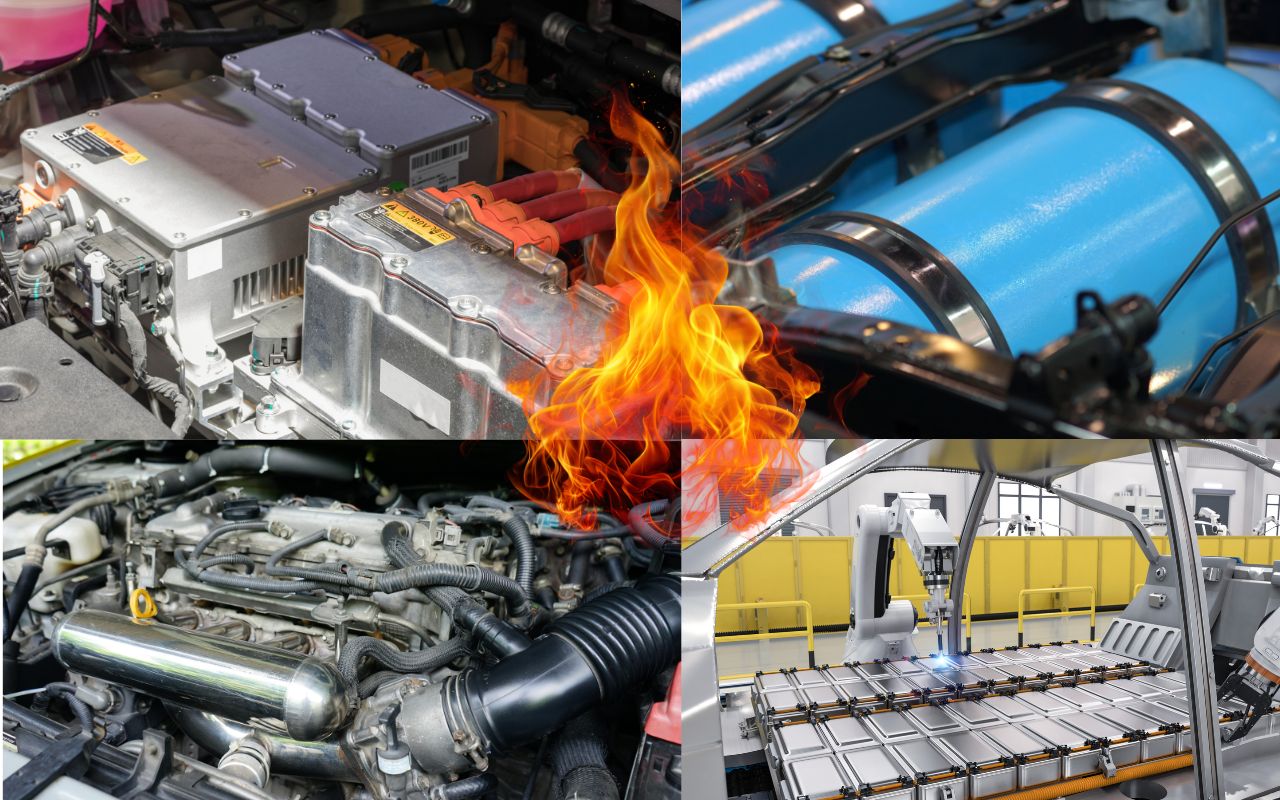
Do Cars Explode Like in Movies? Electric vs. Hydrogen Car Crashes
August 4, 2024The Future of Car Explosions with Electric and Hydrogen Vehicles
Car chase scenes are a Hollywood blockbuster staple. We’re all familiar with high-speed pursuits culminating in spectacular explosions, with cars flying through the air and fires blazing from fuel tanks. These thrilling actions keep us on the edge of our seats, but how much of this is grounded in reality? More importantly, with the rise of electric and hydrogen-powered cars, will these iconic scenes continue to captivate audiences?
Hollywood vs. Reality
The Mechanics of Car Explosions in Films
In movies, car explosions are often triggered by a variety of dramatic causes—fuel leaks ignited by sparks, grenades thrown nonchalantly by heroes, or cars crashing at high speeds. These depictions are undeniably high on drama but low on scientific accuracy.
Real-World Car Explosions
In reality, cars rarely explode as they do in movies. Combustion in a car engine involves controlled mini-explosions that propel the vehicle forward. For a massive explosion to occur, you need a volatile mix of combustible gases, an ignition source, and sufficient pressure within a confined space. While gasoline is flammable, it’s not explosive under normal conditions. Even in severe crashes, the likelihood of a gas-powered car exploding is minimal. In fact, collisions account for only 5 percent of all highway vehicle fires.
Comparing Explosion Risks
Gasoline-Powered Cars
Gasoline cars are the most prone to explosions due to the flammability of gasoline and the multiple ignition sources present in the vehicle, such as the engine, exhaust system, and potential electrical malfunctions. However, these explosions are still rare and often exaggerated in films.
Electric Cars
Electric vehicles (EVs) store energy in battery packs, which are less likely to explode compared to gasoline. However, they are susceptible to thermal runaway—a chain reaction caused by overheating—that can lead to fires. While dramatic in real life, this scenario doesn’t lend itself well to the instant, catastrophic explosions seen in movies. Instead, EV fires can smolder for extended periods before igniting.
Hydrogen Cars
Hydrogen fuel cell cars run on hydrogen gas, which is highly flammable but disperses quickly into the atmosphere, reducing the risk of ground-level explosions. Manufacturers have implemented stringent safety measures, including over-pressurized tanks and automatic shut-off systems, making hydrogen cars safer than their gasoline counterparts. The risk of explosion is significantly lower, and any leaked hydrogen quickly rises and dissipates, unlike gasoline.
The Future of Car Explosions in Films
Shifts in Depiction
With the growing prevalence of electric and hydrogen cars, filmmakers may need to reconsider how they depict car explosions. Electric and hydrogen cars do not explode in the same manner as gasoline-powered vehicles, necessitating a shift in how dramatic car chases and crashes are portrayed. Or will zero-emission cars make any difference in the movie world? The movies never really cared about the science to begin with, so we don’t think zero-emission cars are going to make a difference anyway.
New Visual Effects
Filmmakers could harness unique visual effects and innovative sound design to showcase the power and advanced technology of electric and hydrogen cars. Instead of fiery explosions, these scenes might feature electrical sparks, battery malfunctions, or other high-tech failures. It looks like Hollywood will have to get creative with zero-emission vehicles.Or maybe, they’ll just blow everything up like usual.
Conclusion
While the days of the classic car explosion scene may be numbered, the transition to electric and hydrogen cars offers new opportunities for filmmakers to innovate. The focus may shift from explosion-centric action to high-tech, futuristic car chases that reflect the evolving landscape of automotive technology.
For now, Hollywood’s penchant for exaggerated explosions may continue, but as electric and hydrogen cars become more prevalent, we can expect a gradual shift towards more realistic and technologically sophisticated depictions.



 With over 15 years of reporting hydrogen news, we are your premier source for the latest updates and insights in hydrogen and renewable energy.
With over 15 years of reporting hydrogen news, we are your premier source for the latest updates and insights in hydrogen and renewable energy.